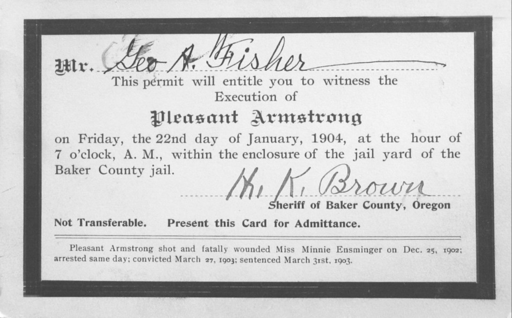Writing at The Dispatch, Kevin D. Williamson laments "adhocracy" in the form of technically legal executive action that skirts legislative prerogatives --- namely, outgoing Oregon governor Kate Brown's decision to commute the death sentences of the state's 17 death row inmates (to life in prison without parole).
It's not that Williamson supports the death penalty. Unlike most "conservative" commentators, he considers the outcome good. His complaint is that "executive unilateralism of the sort being practiced here by Gov. Brown is an invitation to chaos."
He does, in a minor way, support his claim. After court decisions eviscerated the death penalty as practiced, Oregon's voters remedied the situation with a constitutional amendment specifically providing for its narrower use, and the legislature has since tailored that use. "If Gov. Brown wants to change the laws of Oregon," Williamson opines, "she should run for the state legislature."
That's where his argument begins to go off the rails.
Brown DID run for the state legislature --- and served three terms each in the state's House and Senate. All while, candidate surveys indicate, opposing the death penalty.
Brown became governor in 2015 upon her predecessor's resignation. Her first major executive action? Extending that predecessor's moratorium on executions ... after which she was elected to serve out the second half of his term, then re-elected to a full term in 2018.
Brown has consistently opposed the death penalty for at least three decades, during which time she has been elected to public office no fewer than seven times, including twice by the state's entire electorate.
At no time during her tenure in public office has there been any doubt as to her position. The voters chose her either because of her positions or in spite of those positions recognizing that she might do something about those positions. They intentionally gave her access to various types and degrees of power. And her commutations of those death sentences fell within the constitutional limits of that power.
This, as protesters like to shout during their street demonstrations on various issues, is what democracy looks like.
The only "ad hoc" aspect I see here is that Brown didn't handle the cases individually, in which case there might have been some complete pardons mixed in with the commutations.
But the outcome, as Williamson notes, is welcome, and there's no "invitation to chaos" involved. The paperwork was correctly filled out. The relevant boxes were checked. Brown's signatures on the commutations were preceded by multiple voter ratifications of her privilege to wield the pen for that purpose.
The only real negative I see here is the long delay. Brown didn't find the courage of her stated convictions until, term-limited, she headed for the exit. But better late than never.
